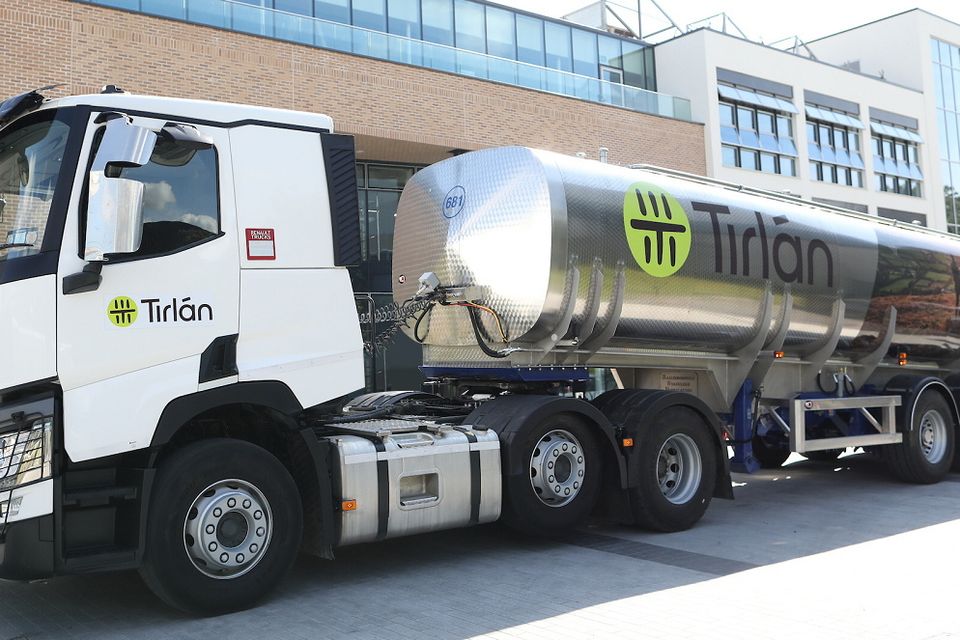
Tirlán has cut its milk price by 2c/L for June supplies.
Tirlán is cutting its base milk price for June supplies by 2c/L, stating that dairy market prices have “weakened significantly in recent weeks and unfortunately this must be reflected in a reduced milk price.
Tirlán has announced that it will pay 38.08c/L (including VAT) for June creamery milk supplies at 3.6pc butterfat and 3.3pc protein.
The June milk price of 38.08c/L is a cut of 2c/L from May and consists of the following:
The Tirlán total price for June creamery milk, based on LTO constituents of 4.2pc butterfat and 3.4pc protein, is 41.4c/L (including VAT).
Tirlán Chairperson John Murphy said: “Dairy market prices have weakened significantly in recent weeks and unfortunately this must be reflected in a reduced milk price.
“The hoped for improvement in market sentiment does not appear to have materialised. For this peak supply month, the Board has decided to support our farmers’ milk price by 3 cpl. The Board will continue to review market developments on a monthly basis.”
It comes as Dairygold has announced that it will reduce suppliers June milk price by 2 c/L to 38 c/L (including VAT), based on standard constituents of 3.3pc protein and 3.6pc butterfat.
It too said “global dairy markets have weakened significantly in the last month and this has reduced the returns on milk.”
“This reduction is driven by reduced demand across all product categories. The Dairygold board will continue to monitor markets closely and review milk price on a month by month basis,” a spokesperson said.
Kerry Group held its base price for June milk at 37c/L (vat inclusive) at 3.30pc protein and 3.60pc fat
Kerry Group said prices for commodity dairy have fallen again in the past month with prices in the EU, US and GDT auctions all moving in the same direction.
“The demand for dairy has declined further with end users well stocked, slow to call off existing orders and slow to contract new volumes. Milk supply is currently more than enough to cover falling demand adding to downward price pressure,” a spokesperson said.




